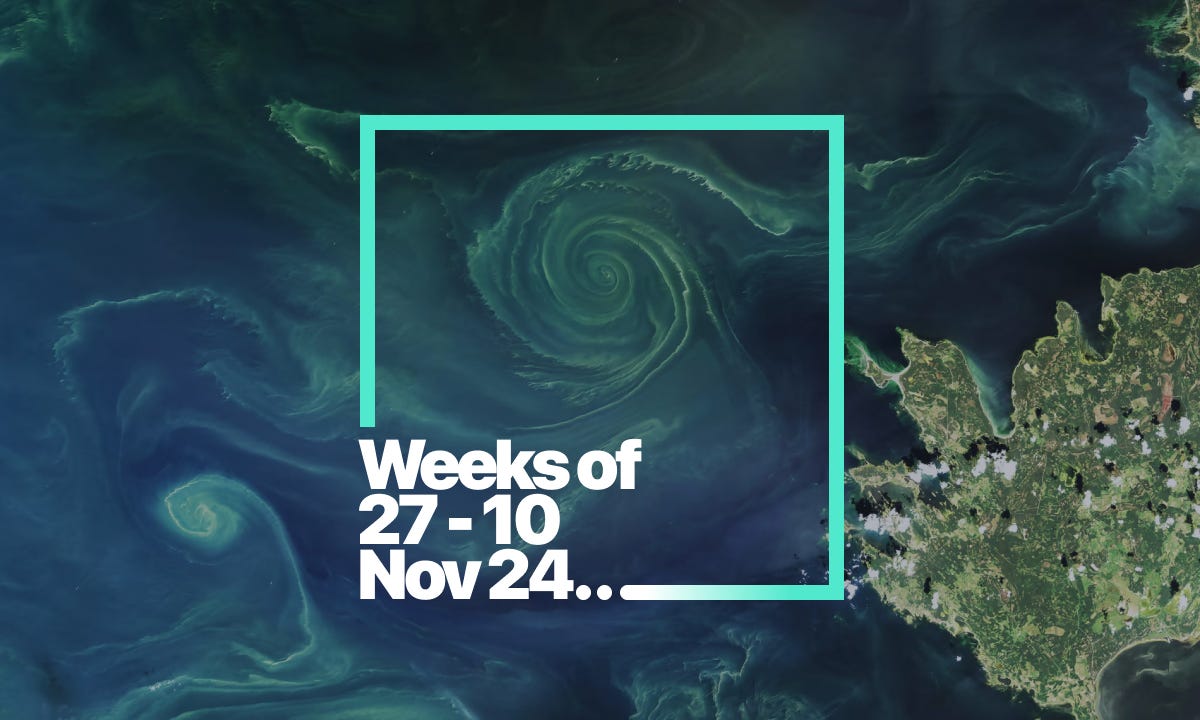59% Chance of Collapse | Weeks of 27 - 10 Nov '24
Risk concerns this week: 13 year lies on impacts of LNG. 600k hackers target US. Security risks in paradise.
Hello 👋 get a brew on because these are the top 3 emerging risks between October 27th October, and 10th November, 2024…
Environmental | 13 years ago, climate impacts from Liquefied Natural Gas (LNG) usage were flagged but only now is the full scope of the danger becoming clear to the public. New findings reveal that LNG, once touted as a cleaner alterna…





